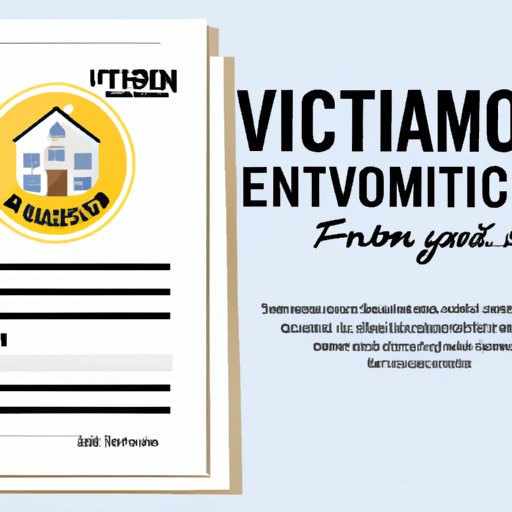Introduction
Eviction is the legal process of removing a tenant from rental property. It is important for landlords to understand the eviction process in order to protect their rights and property. This article will provide a step-by-step guide on how to start an eviction process.

Legal Requirements for Starting an Eviction Process
Before starting the eviction process, it is important to understand state laws and tenant rights. Landlords must have a valid legal reason to evict a tenant, such as failure to pay rent or breaking the terms of the lease agreement. In some states, landlords may also need to give tenants a certain amount of time to cure the violation before filing an eviction.

Steps to Serve an Eviction Notice
The first step in the eviction process is to serve the tenant with an eviction notice. The notice should include the landlord’s name and address, the tenant’s name and address, the date the notice was served, and the reason for the eviction. The notice must be served in accordance with state law, which may require personal service or posting on the tenant’s door. Once the notice has been served, the landlord must file proof of service with the court.
Paperwork Needed to File an Eviction in Court
After serving the tenant with an eviction notice, the next step is to file an eviction in court. To do this, the landlord must complete a complaint form and submit it to the court along with a summons and complaint. Depending on the state, the landlord may also need to include other documents, such as an affidavit or proof of service. Once the paperwork is filed, the court will issue a hearing date.
Tips on How to Handle a Tenant’s Response to an Eviction Notice
When a tenant responds to an eviction notice, it is important for the landlord to remain professional. The landlord should respond quickly and accurately to any questions or requests from the tenant. Additionally, it is important to follow up with the tenant to ensure that they are complying with the eviction notice.

Advice on How to Handle Difficult Tenants During the Eviction Process
It is important for landlords to follow all laws and regulations when dealing with difficult tenants during the eviction process. Landlords should remain patient and calm and use appropriate communication methods, such as written correspondence or telephone calls. In some cases, it may be necessary to hire an attorney to handle the eviction process.
Conclusion
Eviction is a complex process that requires knowledge of state laws and tenant rights. This article has provided a step-by-step guide on how to start an eviction process. In addition to understanding the legal requirements and paperwork needed to file an eviction in court, landlords should also be prepared to handle difficult tenants during the eviction process. For more information, landlords should consult their local housing department or an experienced attorney.
(Note: Is this article not meeting your expectations? Do you have knowledge or insights to share? Unlock new opportunities and expand your reach by joining our authors team. Click Registration to join us and share your expertise with our readers.)
